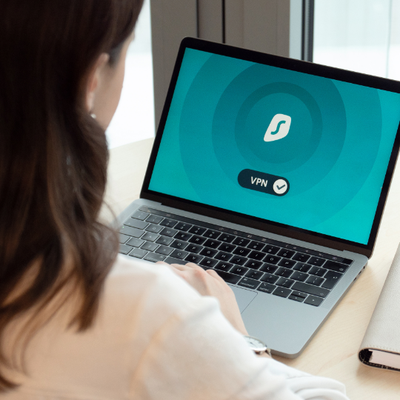VPN: Why you should use a virtual private network
 When the coronavirus first began to race around the world in March last year, it wasn’t just Zoom, Slack and House Party (remember that?) that saw user numbers rise exponentially. As people ditched the office and began to work from home, virtual private networks, or VPNs, saw a boom in usage as well.
When the coronavirus first began to race around the world in March last year, it wasn’t just Zoom, Slack and House Party (remember that?) that saw user numbers rise exponentially. As people ditched the office and began to work from home, virtual private networks, or VPNs, saw a boom in usage as well.
In April last year, Top10VPN reported in its Covid-19 impact report that global VPN demand increased by over 41 per cent in the second half of March 2020. This resulted in an overall increase of 22 per cent when compared to VPN usage before the pandemic first began.
But even before the pandemic, use of VPNs had been growing at a steady rate, with data from Statista suggesting that the industry would be worth a massive $35.7 billion (£27bn) by 2022. The pandemic has only accelerated that growth thanks to organisations’ need to encrypt their employees’ data while working from home, but also from people spending more time at home and wanting to watch American Netflix.
There are hundreds of VPNs out there, but they’re not all made equal. Some of the free ones can be fairly malicious and are known to inject adverts into your web browser and track what sites you visit and the times you visit them.
But what even is a virtual private network, why should you use one and how do you pick the best one for your needs? Read on below and we’ll walk you through everything you need to know when it comes to VPNs.
What is a VPN and how does it work?
In simple terms, a virtual private network is a bit of software that masks your identity, hiding your data in a virtual tunnel. A secure, encrypted connection is formed between your device and a server somewhere in the world. Doing this hides your public IP address and tricks websites into thinking that you’re actually browsing from a different location.
It works a bit like a filter, converting all your internet traffic and browsing data into nonsense. Third-party websites and even your internet service provider won’t be able to see what websites you’re visiting because everything is rerouted through a remote server that’s run by the VPN provider.
Why use a VPN?
When you connect to the internet, your internet service provider (ISP) will be able to monitor everything you do via your IP address. Although it might seem unlikely, your ISP could sell your data on to advertisers or share it with the authorities.
If you frequently hop onto public networks on the train or at Starbucks or McDonald’s, it’s wise to use a VPN because it’s incredibly easy to monitor what you’re doing on the internet and store that data. “A VPN encrypts the traffic from one point to another to prevent cybercriminals from being able to ‘man in the middle’ the traffic,” explains Rick McElroy, principal cybersecurity strategist at cloud computing company VMware. “Simply put, this means that without encrypted traffic, cybercriminals could see which websites you visit as well as any information entered into those websites.”
There are a few reasons why you might want to use a virtual private network. In today’s world of remote working, you might have been introduced to a VPN for the first time through your employer.
If you’re working remotely and you ever need access to confidential files hosted on your company’s network. Connecting to a VPN before you access those files prevents data from leaking out, or your traffic being intercepted when you do access those files because most good VPNs will encrypt your data.
The other reason might be because you need to access content from another country. If you’re in China, for example, you might use a VPN to get around the blocks placed on websites like Facebook, Twitter or Instagram.
But more often than not, you’re using a VPN so that you can spoof your location and access region-specific content that you wouldn’t be able to access otherwise, like US Netflix or Canadian Amazon Prime Video – although do keep in mind that doing this normally breaks the streaming site’s terms of service. “Most consumers are using VPNs to help subvert some of the controls put in place by content streaming providers who use geography to limit what content and licenses they have for it,” McElroy adds.
How do you choose the best VPN for you?
First of all, you need to figure out what you’re going to be using the VPN for. If you’re using it to stream US Netflix, you’ll need a high-speed VPN with oodles of bandwidth.
If your entire household wants to use a VPN, then it’s probably worth getting a router-based VPN. As well as a software-based network,
Not all VPNs are supported on every platform, so it’s worth having a look at the best VPNs to see if the one that you’re interested in has an app and whether that app is any good. Essentially, you want to have a think about what you want to get out of your VPN, because each provider prioritises different things.
And it’s always good to be cautious of free VPNs. While some might just log your IP address, others might track your browsing habits, the apps you use, and the things you buy and look at, to sell this data to third-party advertisers.
Adapted from: What is VPN and what are virtual private networks used for | The Independent
